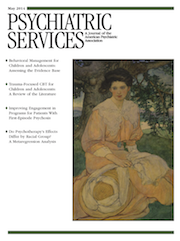The Citizen Patient: Reforming Health Care for the Sake of the Patient, Not the System
The title of this book is perhaps its most unique and innovative contribution. With one fell swoop, Dr. Hadler comes up with a term to try to rally all patients and would-be patients—meaning all of us—to become more informed for the good of our health. In this sense, perhaps, Nortin M. Hadler is the Ralph Nader of health care. He shows in meticulous detail how defective the health care industry has become. It is certainly buyer beware.
Dr. Hadler is well qualified to present his case. Besides being a senior professor of medicine at the University of North Carolina, he built this volume on several prior books on specific social problems that compromise health, including Rethinking Aging: Growing Old and Living Well in an Overtreated Society.
On the other hand, although the intended audience is the average citizen, the book seems much too academic for that level. If anything, the best audience would seem to be patient advocates and peer specialists. Otherwise, it seems best to skim, but be sure to find some of the golden nuggets embedded in the surrounding density, to wit:
| •. | “But this is an era in medicine when ethical failing is not idiosyncratic. We are not talking about the occasional rotten apple; we are talking about blight in the crop.” | ||||
| •. | “Disclosure should not seem necessary, and it is never sufficient. For the citizen patient, it is a red flag.” | ||||
| •. | “We don’t know how the malevolence is meted out, but without a sense of community, one’s longevity is compromised.” | ||||
| •. | “The evidence-based recourse that begs our attention suggests we need to provide a welcoming community and a nourishing ecosystem.” | ||||
| •. | “For the salary of one overpaid hospital administrator, you could hire 10–20 social workers, given each a caseload of 10–20 struggling families, and even if only a minority were helped, make a very important difference.” | ||||
The book climaxes with some unique recommendations for improvement. One is a universal U.S. health care system—or really systems, because a system would be based in each state, allowing for cost-effective comparisons across states. Another is for every citizen to have a Health Assurance Account that can be used for anything related to health, including job training. For the complementary Disease Insurance Account, the ideal is to cover those treatments deemed efficacious, although perhaps Dr. Hadler overemphasizes the value of randomized controlled trials. Although the book falls short of addressing the psychiatric field specifically, much is generalizable to psychiatry, especially community mental health, and Hadler argues for the cost-effectiveness of cognitive-behavioral psychotherapy over psychopharmacology.



